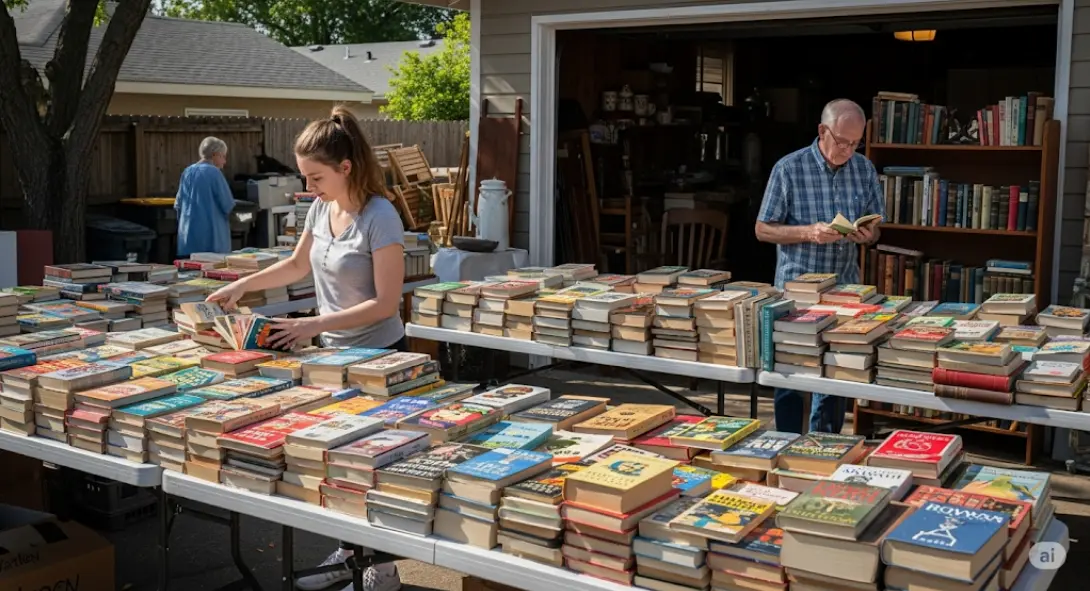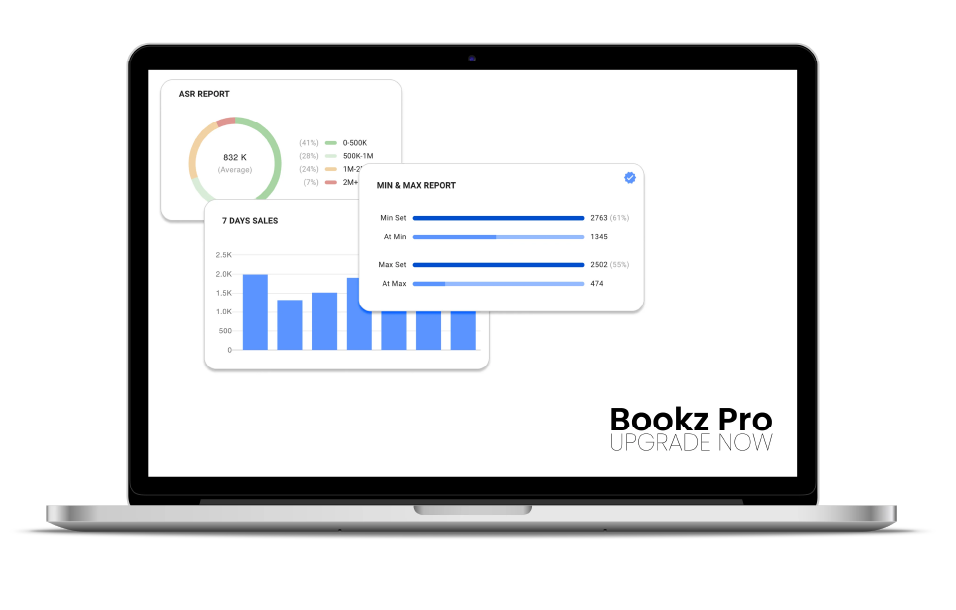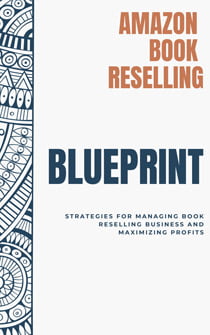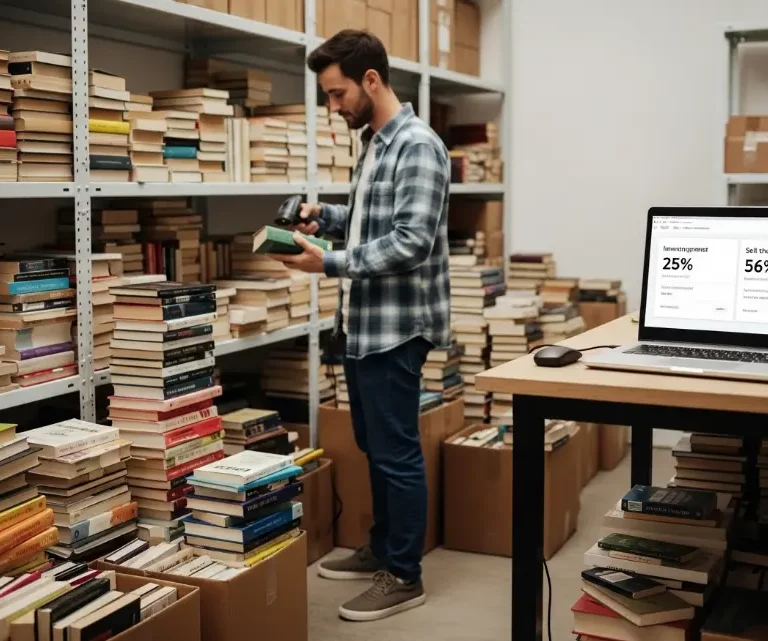Amazon Bookselling: Where to Source Books That Sell

If you’re thinking about getting into Amazon bookselling but aren’t sure where to find books that sell, you’re not alone. One of the most common questions from both new and seasoned sellers is: Where do I source profitable inventory? The good news—you don’t need a warehouse or publishing connections to get started. You can find solid inventory in everyday places—your local thrift store, a neighbor’s garage sale, or even right on your bookshelf.
Whether you’re starting with a tight budget or ready to scale, this guide will walk you through the best places to find books that are not only easy to source but also likely to sell well on Amazon. From thrift shops and online marketplaces to free community finds, we’ll cover it all—plus a few pro tips to help you source smarter, not harder.
Thrift Stores and Charity Shops
Thrift stores and charity shops are great places to start. You might stumble on shelves crammed with donated books—some marked at a buck or less. It’s a simple and affordable way to stock up without overspending.
Prioritize non-fiction titles, textbooks, niche subjects, and books in excellent condition. While fiction can also perform well, the market is often saturated—unless the title is rare or part of a high-demand series.
Check for discount days or loyalty programs. Some stores offer 50% off on specific days, letting you stretch your sourcing budget even further.
Library Sales and Book Fairs
Library sales and book fairs are ideal for building inventory at an affordable cost. Libraries host these events a few times a year to clear out old or donated books—often priced between $0.50 and $2. Some even offer “fill-a-bag” deals for a flat fee.
To catch these opportunities, visit your local library’s website or join Facebook groups and community forums where events are shared. Sites like booksalefinder are also helpful for tracking sales nearby.
Prioritize textbooks, reference books, non-fiction, and niche topics. Larger events often organize books by genre, making it easier to target high-value categories.
Estate Sales and Garage Sales

Estate sales and garage sales are underrated goldmines for finding valuable books to sell on Amazon—often at bargain prices. These local events are great for picking up books in bulk, especially older or niche titles that may be hard to find elsewhere. Plus, sellers are usually open to negotiating, which means even better margins for you.
Here’s how to make the most of estate and garage sale sourcing:
- Arrive early for the best selection – Serious buyers often line up before the sale starts, especially at estate sales. Getting there early gives you the first pick of any valuable books.
- Look for sets and collections – box sets, encyclopedias, or themed collections (such as cookbooks or vintage children’s books) often sell well individually or in bundles.
- Prioritize non-fiction and vintage books – Old travel guides, history books, technical manuals, and out-of-print titles can be surprisingly profitable.
- Use a scanning app – Bring a tool like Bookz Pro to scan barcodes and check Amazon sales rank and profitability quickly.
- Search local listings ahead of time – Use Craigslist, Facebook Marketplace, and estate sale websites to find upcoming sales and view photos of the items sellers are offering.
With a bit of prep and a sharp eye, these local sales can offer low-cost, high-reward sourcing opportunities.
Online Arbitrage
Online arbitrage lets you source profitable books without leaving your home. Instead of scanning shelves in person, you find underpriced books on other websites, buy them, and resell them on Amazon. It’s a great option if local sourcing is limited or if you’re looking to scale efficiently.
Source Book from Online Marketplace
Explore platforms like eBay, Facebook Marketplace, Craigslist, and OfferUp. Sellers often list books in bulk or at low prices—without realizing their resale potential on Amazon.
Set Alerts to Act Fast
Create saved searches and enable notifications for specific titles, ISBNs, or genres, so you can pounce on new listings before other resellers do.
Evaluate Amazon Sales Potential
Accounts for Shipping and Condition
Factor in shipping costs, especially for heavy or long-distance purchases. Always verify the book’s condition to ensure it meets Amazon’s standards and protects your seller rating.
Start Small to Learn What Works
Start by making a few test purchases to refine your sourcing process. As you gain confidence, scale your efforts using automation and bulk deals to grow profits efficiently.
All in One Software
for Book Sellers
Scout Better – List Faster – Reprice Smarter
Over 30% Business Growth
Achieved by Our Clients

Friends, Family, and Personal Collections
Your network is one of the easiest and most cost-effective places to begin sourcing books—especially when you’re starting or working with limited capital.
Here’s how to turn personal connections into profitable inventory:
- Start with your shelves: Scan your collection for books you no longer need. Old textbooks, guides, and forgotten bestsellers may still have resale value on Amazon.
- Reach out to your circle: Let friends, family, and coworkers know you’re collecting used books. A quick social media post, such as “Got books you don’t need? I’ll take them off your hands!” can bring in a steady stream of inventory.
- Offer free pickup: Many people are happy to declutter their homes. Offering to pick up books for free makes it easier for them—and better for you.
- Build a referral network: As more people learn about your book reselling, referrals will follow—especially from those moving or cleaning out.
- Grow your inventory with zero cost: Because the books are free, nearly every sale is profit (after Amazon fees). It’s a safe way to gain experience and find out what sells.
Starting with people you know helps you build inventory without upfront investment—while potentially uncovering hidden gems and building relationships that support long-term growth.
Wholesale Book Suppliers
If you’re ready to scale your Amazon bookselling business or want a steady stream of inventory, wholesale book suppliers can be a smart move. These suppliers sell books in bulk—usually by the pallet or case—so you can build inventory quickly without having to hunt down individual titles.
Here’s how to get the most out of wholesale sourcing:
- Buy in bulk for consistent inventory – Bulk purchases save time and reduce the need to source book-by-book from thrift stores or local deals.
- Research your supplier first –Not all wholesale sources offer quality stock. Check reviews, request sample lists, or place a small test order to ensure you’re getting books that sell.
- Know what type of books they offer – Some suppliers specialize in new overstock titles, while others focus on used books from libraries or returns. Ensure their inventory aligns with your reselling goals.
- Check pricing and condition details – Ask for the average price per book and condition grades. Ensure the cost allows room for Amazon fees and profit.
- Best for sellers with experience – Wholesale is ideal if you already know how to assess profit margins, use scanning tools, and list books efficiently.
- Use software for sorting and profitability checks – Tools like Bookz Pro can help you scan, sort, and analyze large volumes of books to find profitable inventory faster.
Wholesale requires more upfront investment than thrift shops, but once your systems are in place, it’s one of the most scalable ways to grow your book business on Amazon.
Book Trade-in and Arbitrage Apps
1. Use Amazon’s Trade-In Program for Extra Credit
Amazon offers a trade-in program that allows you to exchange eligible books for store credit. While not all books qualify, it’s a smart option if you have extra inventory or find undervalued books online.
2. Use Bookz Pro to Compare Buyback Prices
Use Bookz Pro to quickly compare buyback prices from multiple vendors, ensuring you get the best payout for your books. This feature helps you make informed selling decisions by aggregating offers and showing current market values in one place.
3. Spot Online Arbitrage Deals with Bookz Pro
These tools help you find underpriced books that you can resell for profit on Amazon. With real-time data on sales rank, profit margins, and competition, you can make smarter sourcing decisions fast.
4. Always Factor in Fees and Shipping
Don’t let hidden costs eat your margins. Before sending books, calculate shipping and platform fees to confirm it’s truly profitable.
5. Perfect for Remote or Low-Inventory Sellers
No access to thrift stores? No problem. These apps let you build and grow your Amazon book business entirely online—from anywhere.
6. Create Repeatable Sourcing Patterns
Found a winner? Track similar titles or categories and build sourcing routines that save time and boost profits.
Turn Book Finds into Profits with Bookz Pro

Amazon Book Reselling Blueprint
Read now, explore our full guide. Your revolution starts here. Subscribe to get the blueprint!
Sourcing books for Amazon can be exciting—but without the right tools, you risk wasting time and money on low-profit, slow-moving inventory. Bookz Pro simplifies the process—from barcode scanning to real-time sales rank and profit estimates, providing you the data you need to make smarter buying decisions on the spot.
Start your free 14-day trial and get the Amazon Book Reselling Blueprint, packed with proven sourcing tips and pricing strategies. Whether you’re thrifting or buying in bulk, Bookz Pro helps you turn everyday finds into consistent Amazon profits.
Conclusion
Finding books to sell on Amazon is easier than it seems—if you know where to look. From thrift stores and library sales to online marketplaces and even your bookshelf, there are numerous ways to build a profitable inventory without a significant upfront investment. As you grow, sourcing strategies such as wholesale and estate sales, combined with tools like Bookz Pro, can help you scale smarter and faster. Success in Amazon bookselling ultimately comes down to consistency, intelligent sourcing, and using the right tools that align with your goals, time, and budget.
Frequently Asked Questions
Thrift stores and library sales are ideal for beginners—affordable, accessible, and complete with inventory with resale potential.
Absolutely. Your collection and donations from friends or family offer a zero-cost way to get started and learn what sells.
Yes. Sites like eBay and Facebook Marketplace, paired with tools like Bookz Pro or Zen Arbitrage, let you find undervalued books to flip—without ever leaving home.
These local events often have bulk books at bargain prices. Focus on niche, vintage, or collectible titles, and ask for bundle deals to boost profits.
You can search online for book wholesalers or liquidation companies that sell by the case or pallet. Be sure to vet suppliers and understand the types of books they offer.
It is not required—but highly recommended. Tools like Bookz Pro, Scoutly, or BookScouter provide real-time data on Amazon rank, pricing, and profit margins, enabling you to source smarter and faster.
Textbooks, non-fiction, niche topics, and specific vintage or out-of-print titles often yield the best returns. Fiction can sell too, but it usually has more competition and slimmer margins.
Many sellers do! With consistency, intelligent sourcing, and a scalable system like wholesale or online arbitrage, it’s entirely possible to grow book selling into a steady income stream.



